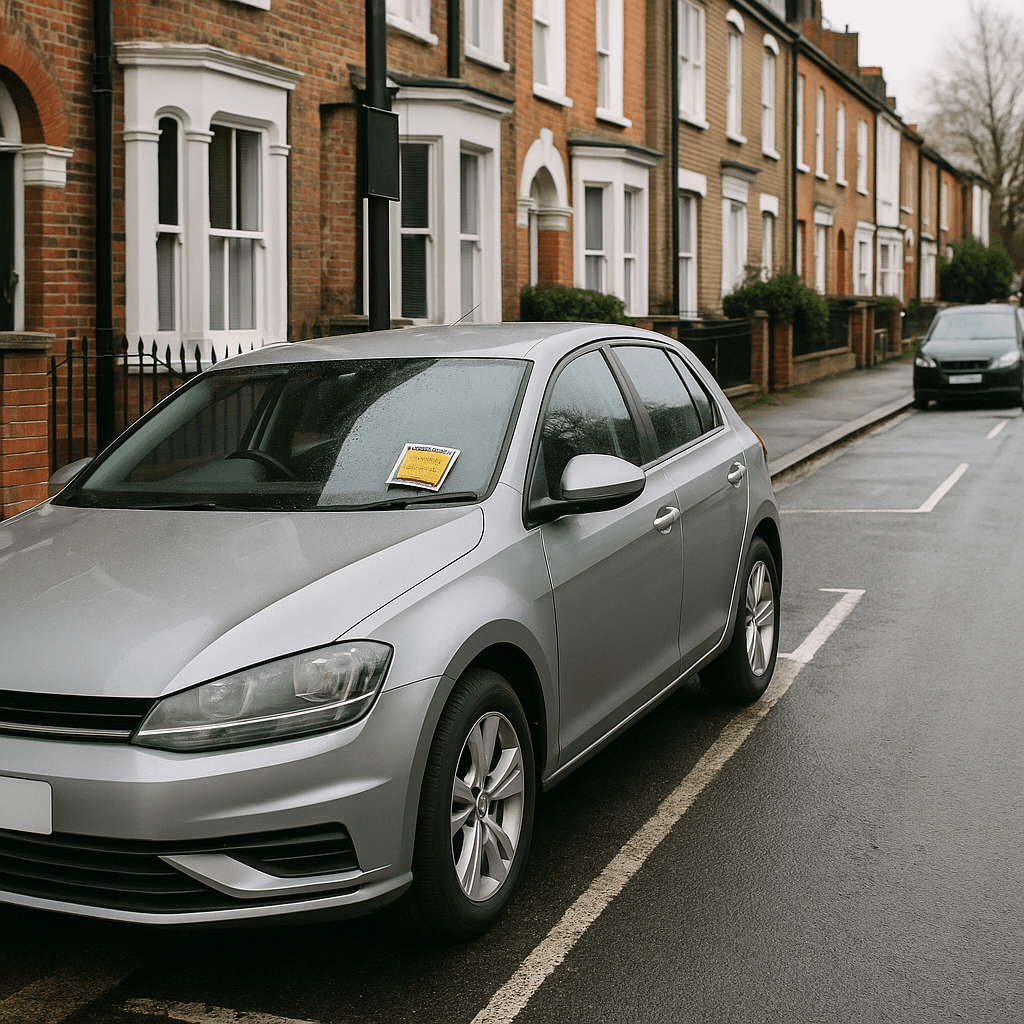
Understanding PCN Code 16: Parked in a Permit Space Without Displaying a Permit
Carlos Mendoza
•5 min read
Understanding PCN Code 16: Parked in a Permit Space Without Displaying a Permit
Imagine this: you're in a rush, perhaps dropping off the kids at school or making a quick stop at the local shop. Parking spaces are scarce, and you spot an empty bay marked for permit holders only. "It'll just be a minute," you tell yourself. But when you return, there's a Penalty Charge Notice (PCN) tucked under your wiper, glaring at you with a Code 16 violation: "Parked in a permit space without displaying a permit." Suddenly, your quick errand has turned into a frustrating and potentially costly ordeal.
What is a PCN Code 16?
A PCN Code 16 is issued when a vehicle is parked in a designated permit space without displaying the required permit. These spaces are typically reserved for residents, businesses, or other authorised users in an effort to manage parking congestion and ensure spaces are available for those who need them. This code helps councils enforce local parking regulations and maintain order on the streets.
Why Do Permit Spaces Exist?
Permit spaces are a crucial part of managing urban parking. They ensure residents have a place to park when they return home and help local businesses secure spaces for their customers or employees. By enforcing permit-only parking, councils can alleviate congestion and improve the quality of life in densely populated areas.
Penalty Charge Notices: The Basics
A Penalty Charge Notice is not a criminal fine but a civil penalty issued by local councils or private companies for parking contraventions. When you receive a PCN, it will include details of the contravention, the location, and the fine amount. It's important to note that fines vary depending on the council and the severity of the contravention.
What to Do When You Receive a PCN Code 16
- Stay Calm: It's easy to panic when faced with a fine, but take a deep breath and assess the situation.
- Read Carefully: Examine the PCN for details such as the contravention code, location, and time of the alleged offence.
- Gather Evidence: Take photos of the signage, your vehicle, and the surrounding area. This can be invaluable if you decide to challenge the PCN.
Council Parking Regulations and Contravention Codes
Each council in the UK has specific parking regulations and uses contravention codes to categorise parking offences. Understanding these codes is crucial when dealing with a PCN. Local councils are responsible for enforcing parking regulations, and they often have detailed guidelines available on their websites.
Common Mistakes Leading to PCN Code 16
- Not Checking Signage: Always look for signs indicating permit-only restrictions. They may vary by time or day.
- Misunderstanding Permit Requirements: Ensure your permit is valid for the specific location and displayed clearly.
- Rushing or Forgetting: In a hurry, it’s easy to overlook these details, but it can lead to costly fines.
The PCN Appeal Process UK
Challenging a PCN can be daunting, but it's entirely possible to have your fine cancelled if you have valid grounds. Here's how to navigate the appeal process:
Step-by-Step Guide to Challenging a PCN
-
Review the Evidence: Gather any documents or photos that support your case, such as a valid permit or unclear signage.
-
Submit a Formal Challenge: Most councils allow you to challenge a PCN online. Be clear and concise, stating the facts and attaching your evidence.
-
Wait for the Council's Response: They may accept your challenge and cancel the PCN, or they may reject it, providing reasons for their decision.
-
Consider Further Appeal: If your challenge is rejected, you can escalate the matter to an independent adjudicator through the Traffic Penalty Tribunal.
Pro Tip: Be Prompt and Thorough
- Time is of the Essence: You usually have 14 to 28 days to challenge a PCN, depending on the council.
- Be Detailed: Clearly explain your reasons for contesting the PCN, and be sure to include all relevant evidence.
Practical Tips for Avoiding PCN Code 16
-
Plan Ahead: If you know you’ll need to park in a permit area, arrange for a visitor’s permit in advance.
-
Use Technology: Apps like Parkopedia can help you find parking that suits your needs, reducing the risk of inadvertently parking in a permit space.
-
Double-Check: Before leaving your vehicle, always verify that your permit is visible and valid for the spot.
-
Educate Yourself: Familiarise yourself with local council regulations and signage to better understand where you can and cannot park.
Conclusion: Navigating Parking Fines in the UK
Receiving a PCN for parking in a permit space without displaying a permit can be frustrating, but understanding your rights and the appeal process can significantly improve your chances of a successful challenge. Whether you're paying the fine or appealing it, staying informed is your best defence against future parking mishaps.
Next Steps
- If You’ve Received a PCN: Review it immediately, gather evidence, and decide whether to pay or challenge it.
- To Prevent Future Issues: Familiarise yourself with local parking regulations and use tools to help you find compliant parking spaces.
Remember, while parking can sometimes be a hassle, with the right knowledge and resources, you can navigate the UK's parking regulations confidently and avoid unnecessary fines. Safe parking!